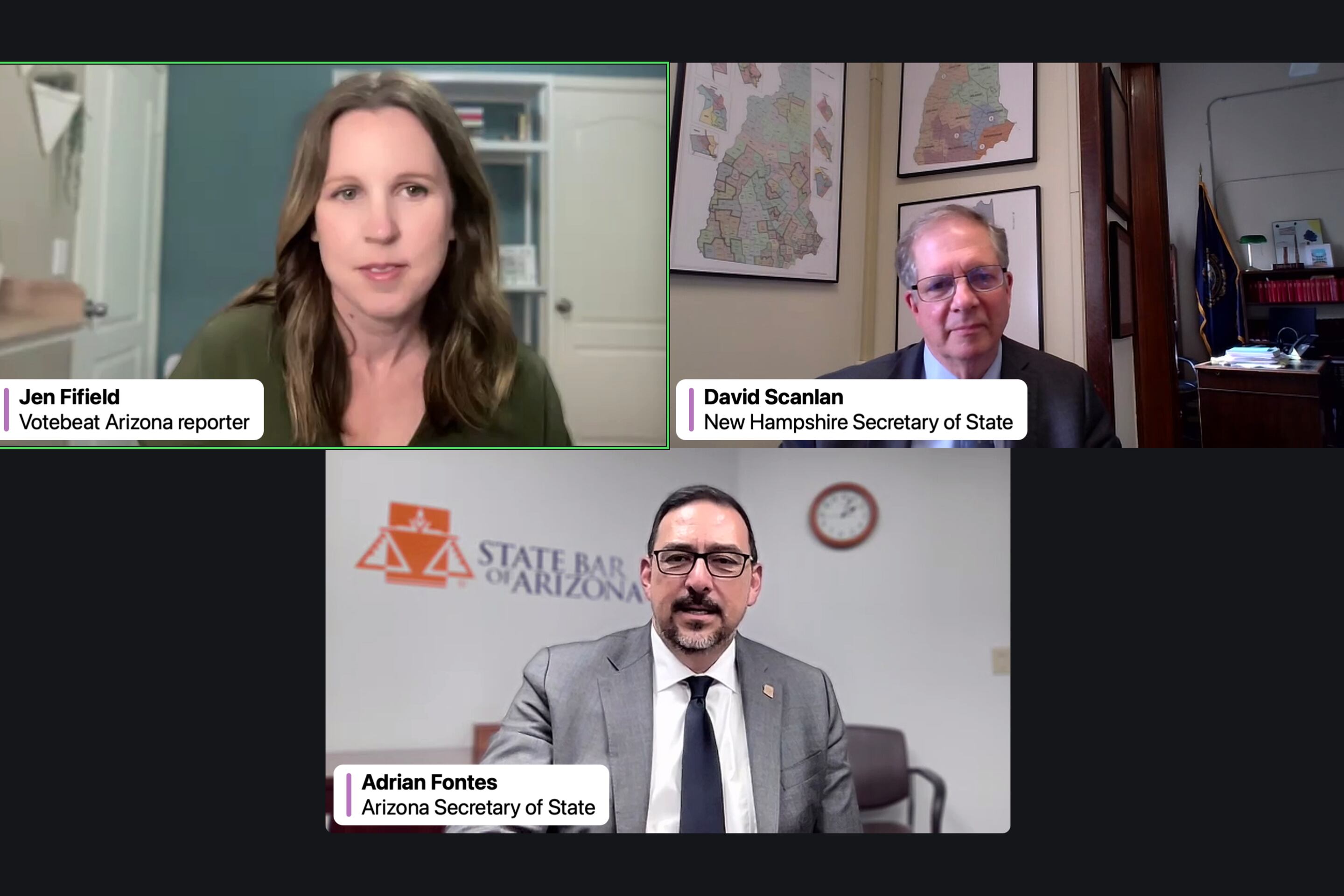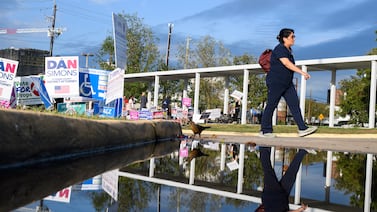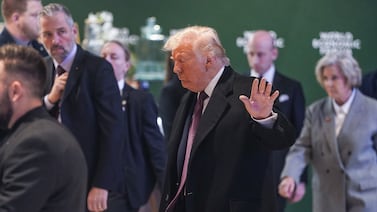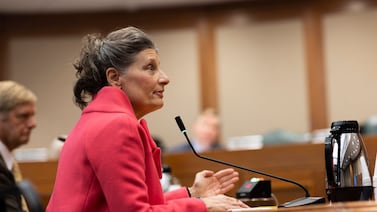Votebeat is a nonprofit news organization reporting on voting access and election administration across the U.S.
This news analysis was originally distributed in Votebeat’s free weekly newsletter. Sign up to get future editions, including the latest reporting from Votebeat bureaus and curated news from other publications, delivered to your inbox every Saturday.
This week, Votebeat had a chance to sit down with Arizona Secretary of State Adrian Fontes and New Hampshire Secretary of State David Scanlan to discuss one of the most contentious topics in election administration today: laws that require voters to show documentary proof of their U.S. citizenship.
Fontes is a Democrat, and Scanlan is a Republican. They are charged with overseeing elections in very different states. But they frequently found common ground while discussing whether these laws are necessary, how they affect voters, and what happens when policy is driven by perception rather than reality.
The conversation was moderated by Votebeat Arizona reporter Jen Fifield. You can watch the full recording here.
A national debate, shaped by local realities
Arizona has had a documentary proof-of-citizenship requirement to vote in state and local elections in place since 2004. In New Hampshire, a law requiring citizenship proof for anyone registering to vote went into force before local elections earlier this year.
Many more states are considering adding requirements to voter registration to keep noncitizens off the voter rolls. Congress is considering the SAVE Act, legislation to require citizenship proof nationwide, and President Donald Trump in March issued an executive order mandating it, though a federal court has blocked his directive.
For Fontes, who is skeptical of such laws, the motive behind them is clear: “the willingness of some folks to try to bend a political narrative that is not based in fact in order to attain or retain political power.”
He stressed that cases of noncitizens casting ballots are exceedingly rare. “There are onesies, twosies — incidents where people make attempts” to vote as noncitizens, Fontes said, but it doesn’t happen at scale. The idea that the system needs to be upended to address this rare problem, he added, “seems a little tail wagging the dog.”
Scanlan acknowledged that noncitizen voting is rare, but offered a more nuanced view of the case for proof-of-citizenship requirements, stressing the need for balance. “Everyone who is qualified should be able to exercise that right without a lot of difficulty,” he said. “But voters also have the right to know who else is participating in that election, and that those individuals are qualified.”
The tension between those two principles — access and integrity — is where Scanlan sees the challenge. “In the extremes, if you make it too hard to register to vote, you are creating a situation where voter suppression can exist,” he said.
Added burdens for voters — and states
Both secretaries raised concerns about the impact documentary proof-of-citizenship laws can have on voters who may struggle to navigate them.
Scanlan cited examples from his own state’s experience in this year’s local elections. A small group of voters showed up without documentation. Most returned later with the required paperwork, but “there were some who just left and never came back.”
“That tells me that we know there is a population out there that is going to need some help,” he said. And that help has to come in two forms: robust voter education and direct assistance in obtaining documents.
Fontes went a step further with his caveats. Asked what advice he’d offer to other states considering similar laws, he said: “First, don’t do it — it’s a bad idea.”
It’s understandable for voters to be concerned about noncitizen voting potentially diluting their political power, Fontes said, but the facts don’t back up the fear. “If I knew someone was taking some of my power away, I would be upset too,” he said. “But I haven’t seen any evidence that this is happening.”
Both of them cautioned that states determined to implement proof-of-citizenship requirements should expect to spend plenty of time and money on making the system work: Educating voters on new processes is hard, and so is retraining every pollworker.
“We’re tinkering around with a fundamental right here,” Fontes said. “It’s going to be a rough ride.”
What comes next?
The conversation didn’t offer tidy solutions, but it did something arguably more important: It acknowledged the nuance, the tradeoffs, and the very real impact these laws can have on voters.
Fontes closed with a warning: “Massive changes to solve a tiny problem? That’s not good governance.”
Scanlan, more measured, said the responsibility falls on election officials to make sure the system works for everyone, including those who might otherwise be left behind.
As more states consider implementing documentary proof of citizenship laws, the lessons from Arizona and New Hampshire are becoming clearer: context matters, execution matters more, and trust — well, that’s what’s really at stake.
Jessica Huseman is Votebeat’s editorial director and is based in Dallas. Contact Jessica at jhuseman@votebeat.org.




